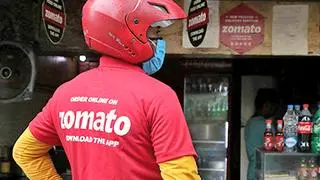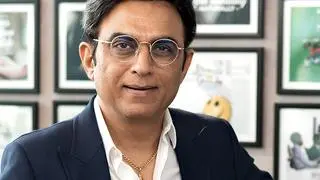Pharmaceutical giant Roche is in the news for all the wrong reasons — for what is being seen as the company putting profits over human lives.
The company has found itself in the eye of the storm following the death of Tobeka Daki, a South African activist as well as breast cancer patient.
Globally, activists are making a call to compel Roche to lower its prices and stop litigating companies developing cheaper alternatives to trastuzumab, a drug for which Roche does not hold a patent globally since 2014.
The problem, however, does not begin or end with trastuzumab, which is used to treat an aggressive HER 2 positive breast cancer. In India, every year thousands go without life-saving cancer medicines they cannot afford, even though the country has one of the cheapest cancer medicines in the world — including patented drugs.
Access to cancer medicines remains abysmally low in India, with cost of treatment over a year costing as much as ₹57 lakh for medicines such as Cabazitaxel, which is used to treat advanced prostate cancer and costs ₹3.3 lakh for a 60-mg vial.
PharmaTrac, which is a database on Indian pharmaceutical industry from market research organisation AIOCD AWACS, shows that prices of cancer medicines remain unreachable across the board — Sprycel (Dasatinib) by BMS costs ₹3,287 per 50 mg tablet and costs a patient over ₹23 lakh over a year ; Torisel (Temsirolimus) from Pfizer is priced at ₹70,971 per 25 mg injection and weighs in at a massive ₹36 lakh a year; and Pfizer’s Crizalk (Crizotinib) used to treat advanced lung cancer is priced ₹11 lakh a year in patient’s pockets.
A study presented to the American Society of Clinical Oncology last year shows that the median monthly prices of patented cancer medicines stand at about $1,515 in India, against $8,694 in the US; $2,587 in the UK and $1,708 in South Africa. Yet, when people’s ability to pay for these medicines was taken into consideration (using gross domestic product per capita at purchasing power parity (GDPcap)) India fared the worst.
Patented drugs cost 313 per cent of the GDP cap in India, versus 192 per cent in the US, 78 in the UK and 157 per cent in South Africa.
Sixty-two-year-old Prabha, a breast cancer survivor, is a prime example of this inability to afford treatment.
Diagnosed two years ago with HER 2 positive breast cancer, she was treated at the All India Institute of Medical Sciences (AIIMS). However, when it came to treatment Prabha’s son Chetan — the only earning member of the family with an approximate annual salary of ₹3.5 lakh — could not afford to get his mother the Roche medicine trastuzumab that her condition needed. Her treatment would have costed Chetan at least ₹8 lakh.
“We tried all avenues. We wrote to the companies, health activists tried to help us, we even approached the government, but all attempts failed,” Chetan says. Six months back his mother finished treatment, without trastuzumab. “We hope that doesn’t impact her life,” her son says.
Malini Aisola of the All India Drug Action Network, explained that while Roche does not have a patent on trastuzumab any longer, the company has made all efforts to block the entry of biosimilars — tying them up in litigation.
While Biocon and Mylan — the two companies who developed the alternatives — are now allowed to sell their biosimilars litigations have put constraints on how they can sell these medicines.
The drug is now under the National List of Essential Medicines, and its price has been capped by the government at ₹55,812.29 for a 440-mg vial — still unaffordable for most.
“Unless the government is able to provide these medicines for free most patients will never get these medicines,” Aisola said, calling Roche’s aggressive strategy to block cheaper alternatives “morally repugnant.”






Comments
Comments have to be in English, and in full sentences. They cannot be abusive or personal. Please abide by our community guidelines for posting your comments.
We have migrated to a new commenting platform. If you are already a registered user of TheHindu Businessline and logged in, you may continue to engage with our articles. If you do not have an account please register and login to post comments. Users can access their older comments by logging into their accounts on Vuukle.